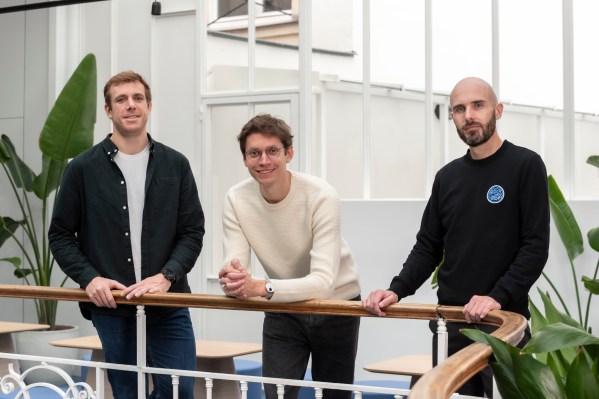You might not be familiar with the name Tomorro, but it is actually not a new startup. Tomorro is a French contract management platform that originally started as Leeway. And today, the company is announcing its new brand and an $11.9 million funding round (€11 million).
The reason why Leeway is becoming Tomorro is because the company believes we are on the verge of a massive wave of adoption for so-called contract lifecycle management (CLM) tools. With the COVID pandemic, many companies discovered the convenience of e-signatures and they don’t imagine canceling their DocuSign subscription. Now the next step is contract management.
Resonance led the Series A round with participation from Financière Saint James, Motier Ventures, existing investor HenQ and several angel investors. While many startups complain that it can be hard to raise a round in the current funding environment, Tomorro didn’t face major issues.
“We didn’t feel any particular difficulties. The roadshow was very quick, and in three weeks or a month, it was mostly done,” co-founder and CEO Antoine Fabre told me. The due diligence process took a bit longer than that, of course. He talked to roughly 15 VC funds for this round. As a data point, Tomorro currently has around 200 clients.
So what does Tomorro do exactly? Instead of using Microsoft Word to draft contracts and an Excel spreadsheet to note the amounts, due dates and other relevant information, Tomorro acts as a central repository for all your contracting needs — you no longer need to check if “Important contract v3.1 final FINAL.docx” is indeed the most recent version of a specific contract.
It looks like an online drive with folders and documents, but it’s a multiplayer tool with additional features. Tomorro lets you edit documents directly in your browser, which means that you can create a template library (with variables) and suggest edits from there.
Once a contract is done, Tomorro can send approval notifications to other relevant team members. On the other party’s side, the startup also supports basic e-signatures and has an integration with DocuSign for advanced signatures.

Image Credits: Tomorro
All these features are nice, but Tomorro becomes interesting once you start to think about ways to automate and streamline contract management. For instance, Tomorro can track contracts that are about to expire.
“A product like what we’re building makes a lot of sense in the current context as companies need to control their commitments with their suppliers. They need to know when they can cancel if they want to cancel,” Fabre said.
The tool can also be integrated with a CRM like Salesforce so that a contract is automatically generated once a salesperson is ready to sign a new client without having to connect to Tomorro’s interface.
“The legal team is pinged if it’s necessary to intervene on a contract. Otherwise, they are signed independently. So, the legal department saves time and the sales department is much more efficient,” Fabre said.
The startup also recently added AI features to reformulate text or change the tone of the contract. In the future, the company plans to add more AI features so that you can “talk with your contract” instead of skimming through 30 pages.
Tomorro isn’t the first and only company to focus on contracts. There are other contract lifecycle management companies, such as Ironclad in the U.S. For now, Tomorro is still very much focused on the French market. But it plans to address other European markets in the next couple of years.
“There are a lot of players in this market that is growing fast. I often compare it to the e-signature market five years ago,” Fabre said. “We’re not yet at the same stage of mass adoption as e-signature is today, but we can sense a considerable acceleration in the adoption of these tools.”
